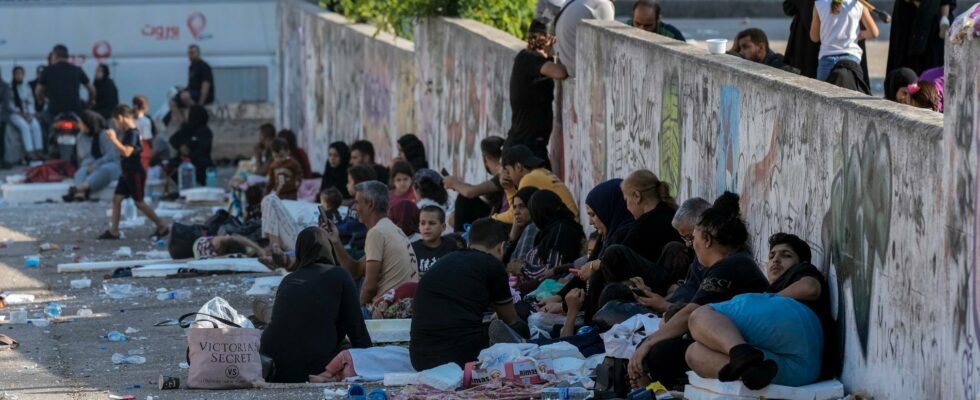unsaveSave
Families sit on the ground at Martyrs’ Square in Beirut after fleeing Israeli airstrikes in the southern parts of the city. The picture was taken on September 28.
1 / 3 Photo: Bilal Hussein/AP/TT
People seek shelter on the streets of Beirut and refugees return to Syria as the humanitarian situation worsens in Lebanon following Israel’s bombardment.
Over 210,000 people have been displaced in Lebanon since October last year, 120,000 of them since Monday, when the fighting between Israel and the Iran-allied Shia militia Hezbollah escalated sharply, according to UNHCR’s head of communications Charlotte Hallqvist.
– The situation is extremely critical and these people are very vulnerable, she says.
Difficult to get resources
The country is in a severe economic crisis, which the escalation blocks. Charlotte Hallqvist states that UNHCR is finding it difficult to obtain resources and that they have long said that an escalation will lead to a “major humanitarian crisis”.
UNHCR has so-called collective centers where almost 80,000 people are located. There they can receive basic emergency care, supplies, food and water.
– The reports we get are that many sleep outside. They try to find shelter, sleeping on beaches and streets with small children and the few belongings they could bring with them.
During the week, Israel has carried out extensive air raids against, among other things, Beirut, and last Saturday it was announced that Hezbollah leader Hassan Nasrallah had been killed in a “precise attack” against the suburb of Dahieh. It caused many in the area to leave their homes.
Fleeing back to Syria
In addition to the hundreds of thousands who are refugees in Lebanon, over 50,000 have fled to war-torn neighboring Syria. A large number of them are some of the 1.5 million Syrian refugees who once fled to Lebanon. The majority who flee now are women and children, according to Charlotte Hallqvist.
– People also come injured. One of the stronger stories from one of our colleagues was a woman who was carrying two dead children when she crossed the border.
UNHCR is stationed along four areas of the border and the refugees arrive in a country that has been hit hard economically and humanitarianly.
– The situation at the border is extremely difficult. There are long queues – many are trying to move with cars and many are walking, and they have almost only the clothes they had when they escaped. They come across the border extremely tired and traumatized.
